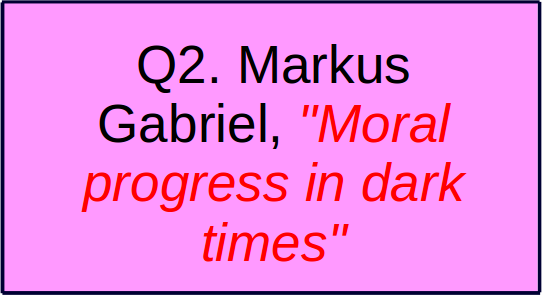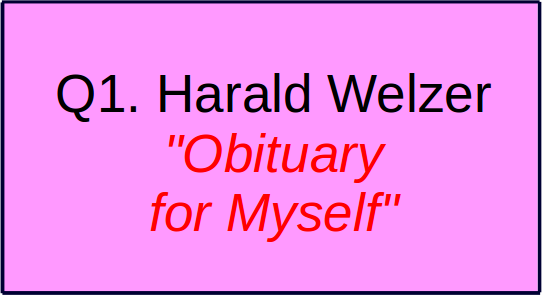Quotes from Friendly Books
Why do we want peace, but wage wars?
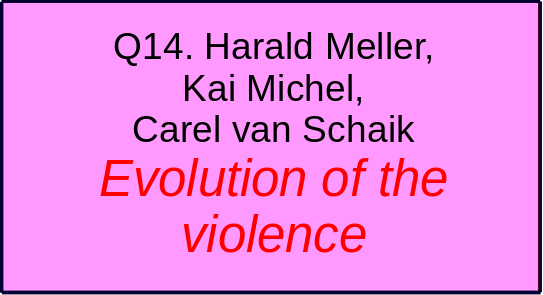 Jun, 2025
Jun, 2025
Harald Meller, a prominent archaeologist, Kai Michel, a historian, and Carel van Schaik, an evolutionary biologist, have jointly written 2024 an important scientific document in the form of a book (in German); (‘The Evolution of Violence: Why We Want Peace but Fight Wars: A Human History’; dtv 2024). Below, I quote (mostly without comment) numerous excerpts from this book to explain the topic of my article (‘The Evolution of Violence’) from a scientific perspective.
"Fundamentals of an Embodied Anthropology"
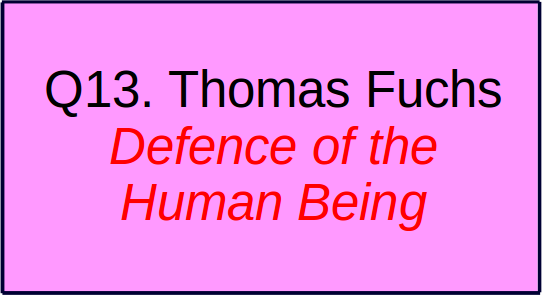 Jul, 2024
Jul, 2024
In his book, the Heidelberg philosopher, psychiatrist and psychotherapist Prof. Thomas Fuchs defends a humanistic view of the human being. Not an abstract inwardness, disembodied consciousness or pure spirit are the guiding ideas of such a humanistic view of the human being, but his or her concrete bodily existence. The author writes the typical philosophical book by starting with the explanation of some controversial philosophical terms, then using his additional training as a psychiatrist and psychotherapist to expand these philosophical terms and illustrate them with examples, and only then looking for a better scientific explanation for his main thesis. In doing so, he actually achieves the best connection with my Universal Philosophy of Life (which is based on my Unified Physics), which I have read in today's philosophical literature.
"The Invention of Good anf Evil"
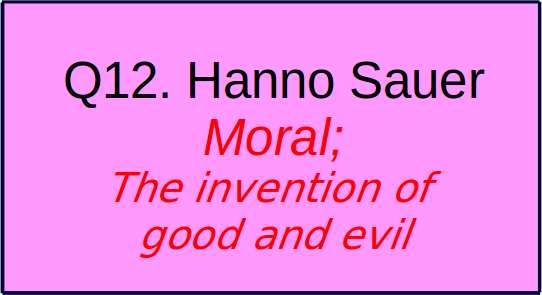 Dec, 2023
Dec, 2023
Science is not primarily about finding the right explanation for a problem, but about asking the right questions that make us aware of the need for an explanation for that problem in the first place. The gift of a scientist to be able to ask the right questions is the necessary prerequisite for the progress that this scientist can make in his field. In my opinion, Hanno Sauer is such a gifted scientist in philosophy. In his book, he asks many of the right questions that need to be asked about the history of the emergence of humans in order to tell that history better than before.
"The new Little Ice Age around the 24th century"
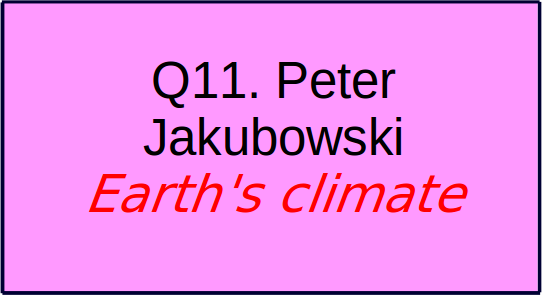 Dec, 2023
Dec, 2023
Peter Jakubowski is a physicist and universal philosopher who has expanded his unified physics to include a unified description of the entire universe, including that of life and human consciousness. The World Formula he has found will fundamentally change all natural sciences and the technologies based on them. The aim of this small but important book is to provide the best possible well-founded arguments and research results on the Earth's climate.
"A motivation for reorganisation"
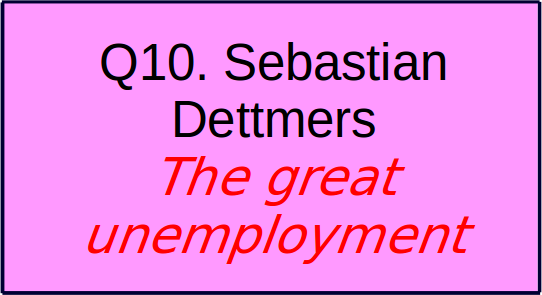 Nov, 2023
Nov, 2023
For the first time, another author writes about the necessity of a foresight on the future of all of us, and he does so with very concrete visions, approaches and practical examples. We need more books like this, and we need them urgently. Today's problems obscure our visions of tomorrow. You have to move up quickly to escape the fog “in the valley of history”.
"Redefining the common good"
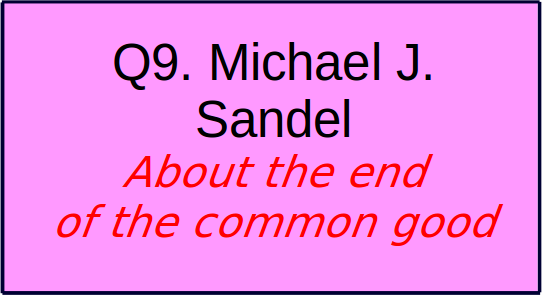 Feb, 2023
Feb, 2023
Many scientists are seriously concerned about how we can better ensure the common good of not just one nation, but the entire global community in the future. The moral philosopher Michael J. Sandel even fears the end of the common good if populists worldwide continue to gain ground. In his latest book, he describes how and why we should oppose the tyranny of performance. He also suggests that to this end, we must rethink the concept of the common good. To do this, we must overcome the deadly tendency of extreme individualization in our society by strengthening and prioritizing our moral bonds with others.
"How stories shape our lives"
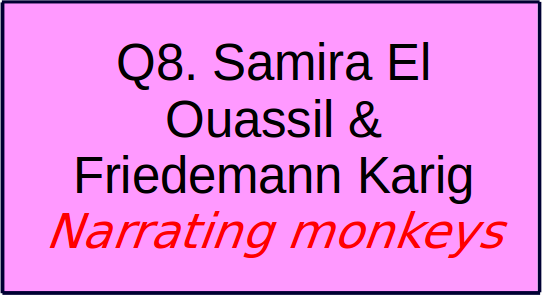 Nov, 2022
Nov, 2022
The most important book I read after my “summer series” is by Samira El Ouassil and Friedemann Karig and has the self-explanatory title “Erzählende Affen” and the equally clear subtitle “Myths, Lies, Utopias; How Stories Shape Our Lives”; (Ullstein, 2021). It is another groundbreaking book, like the last one I cited here (about the feelings of Neanderthals). Although the book once again traditionally puts us in a row with monkeys (in the sub-sense: with great apes), this title is not to be interpreted as an insult here either; it could just as easily be called “Narrative Animals”. This fascinating book is primarily about the narratives, stories and tales that we have been telling each other again and again since the beginning of humanity. And about their power to determine, orient and change our shared (but also individual) lives. Even if many of these stories are not only utopias, but also myths or brutal and deliberate lies.
"A new look at the life, love and art of Neanderthals"
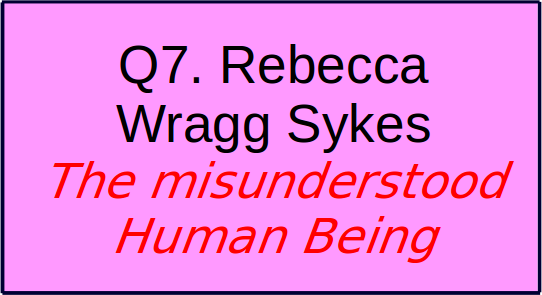 Jul, 2022
Jul, 2022
The book is so important, yes, groundbreaking in the long line of books dealing with
Neandertals that I hereby want to polemically write down a longer description of the theses of the highly competent author. Most of these theses are new, even red-hot. The important problem that runs through this valuable book is the lack of a global theoretical time scale that allows the various artifacts and events from the past to be correctly related to each other. This is also closely related to the most important weakness of every previous theory of evolution; namely, the lack of theoretical and practical time spans of the individual Species, Genera, Families, Orders, etc. It is only thanks to my unified science that these time spans could be precisely defined.
"A better look at Africa and its future"
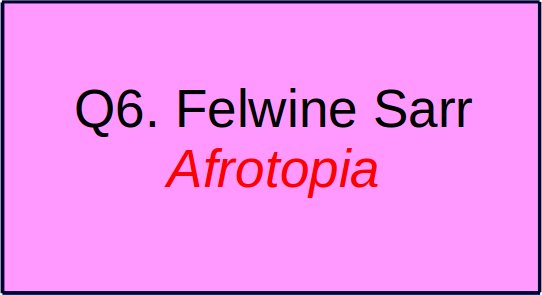 Feb, 2022
Feb, 2022
The third book in my “summer series” is by Felwine Sarr, a Senegalese economist who has also been invited to the “Sternstunde Philosophie” (a Swiss TV program). The relatively small book “Afrotopia” sharpens our view of what will soon be the most important continent on earth. As Felwine Sarr writes: “In 35 years, Africa will account for a quarter of the world's population. It will embody the vitality of humanity, because it will have the highest proportion of inhabitants between the ages of 15 and 45. This demographic weight and vitality will shift the social, political, economic and cultural balance of the planet.”
"A new history of Humanity"
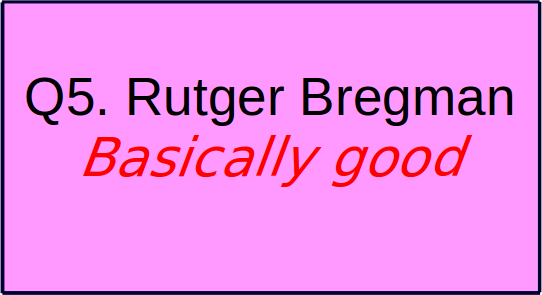 Feb, 2022
Feb, 2022
The earliest book of my “summer series” is by Rutger Bregman, who was also featured later in “Sternstunde Philosophie”. In the introduction to this 3Sat piece (from May 29, 2022), we read: “There is war in Europe, climate change is progressing, millions of people are starving. But for the historian Rutger Bregman, one thing is clear: at heart, humans are benevolent and good.“
"Growing up at the end of history"
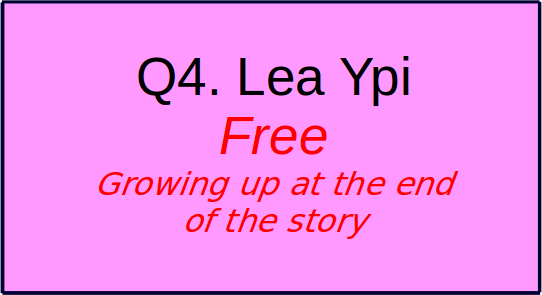 Feb, 2022
Feb, 2022
During the summer months of 2022, I greatly reduced my online activities. Instead, I read several new books. Some of them were so valuable that I would like to briefly report on them here to encourage you to read them as well. The first fantastic book of this series of mine is by Lea Ypi, who I enthusiastically got to know through the “Sternstunde Philosophie” (a TV program about philosophy).
